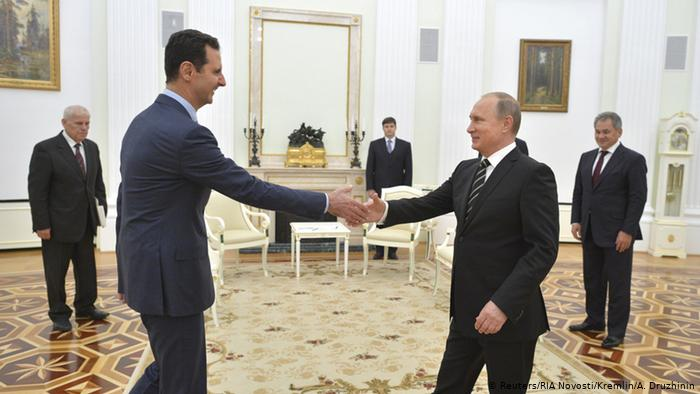A recent Hezbollah visit to Moscow has provoked speculation as to the trip’s motives. Experts have suggested that the visit which took place two days ago was intended to establish more about Russia’s position on the Syrian regime’s head, Bashar al-Assad.
Journalist Igor Sobotin published an article in Nezavisimaya Gazeta, which Russia Today quoted, about the real purpose of the visit of the Hezbollah delegation to Moscow.
He pointed out that despite the fact that one of the public goals of the trip is to discuss the Lebanese political impasse, experts believe that Hezbollah representatives want to know from Moscow whether there have been any changes in its stance towards Assad.
Sobotin linked the visit to that of Israeli Minister of Foreign Affairs, Gabi Ashkenazi, who is expected to arrive in the Russian capital on March 17.
Non-resident researcher at the Middle East Institute in Washington and non-resident military affairs expert at the Russian International Affairs Council, Anton Mardasov, told the newspaper that “it is clear that Russia is trying to bring the Syrian file back to the diplomatic track.”
“It is necessary to negotiate the current impasse, similar to what happened in 2011-2012, when Russia was not confident about Assad’s future, after Astana did not yield results and the Constitutional Committee could not be given a serious reform structure. The visit of the Hezbollah delegation and the activation of the Russia-Turkey-Qatar formula did not seem to come about by accident,” he continued.
Referring to the discussion on the need to establish a military council in Syria, Mardasov said, “We must talk about the particulars of the Syrian file, and even clarify it amid the upcoming presidential elections and the media campaign on the establishment of a military council headed by Manaf Tlass.” He noted that “this visit reminds us of the 2011 visit when it appeared as if the Hezbollah delegation arrived at the invitation of the Russian side, with its representatives giving lectures at Moscow State University, but it was clear to everyone that they were primarily interested in the Russian position on Assad.”
 Eurasia Press & News
Eurasia Press & News




